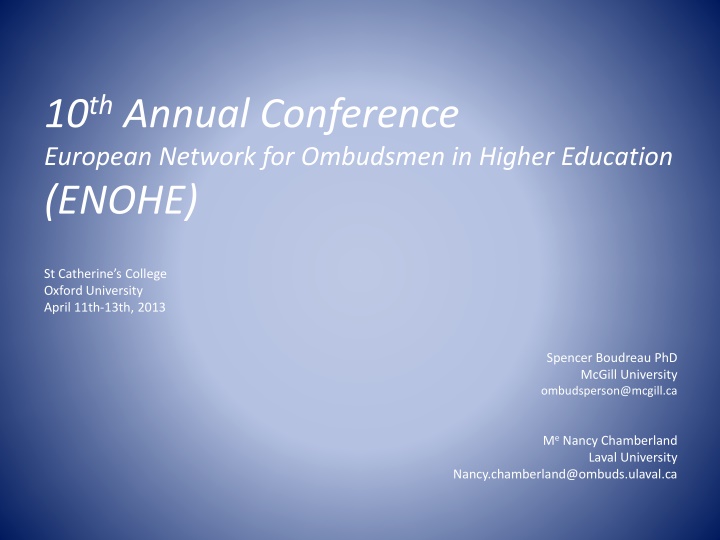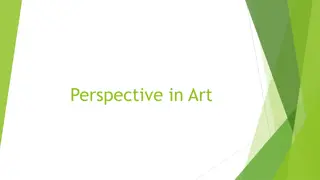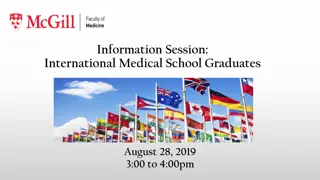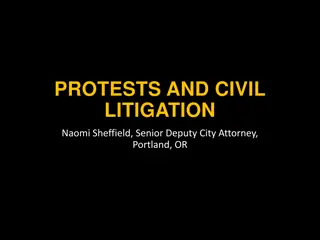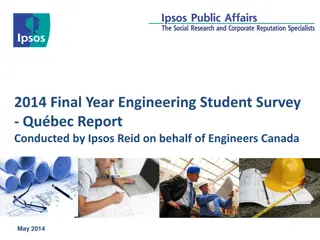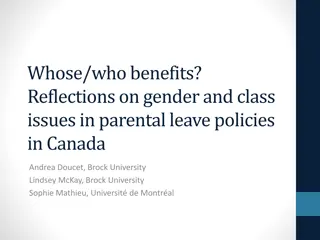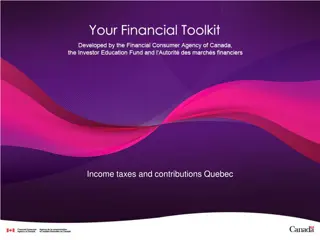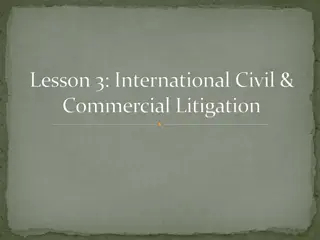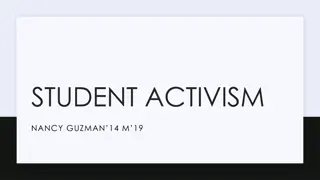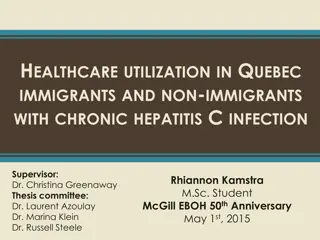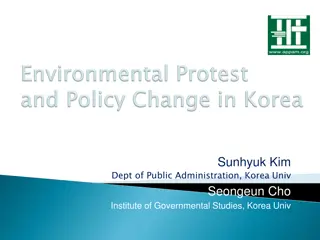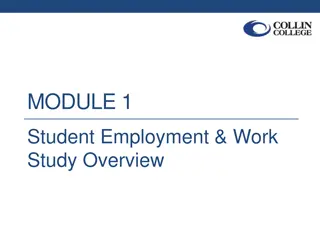Student Protests in Quebec: A Historical Perspective
The student protests in Quebec, particularly the Maple Spring of 2012, were sparked by proposed tuition fee hikes, leading to significant demonstrations and the passage of Bill 78. The protests, supported by labor unions, ultimately resulted in changes in government and the repeal of planned tuition increases.
Download Presentation

Please find below an Image/Link to download the presentation.
The content on the website is provided AS IS for your information and personal use only. It may not be sold, licensed, or shared on other websites without obtaining consent from the author.If you encounter any issues during the download, it is possible that the publisher has removed the file from their server.
You are allowed to download the files provided on this website for personal or commercial use, subject to the condition that they are used lawfully. All files are the property of their respective owners.
The content on the website is provided AS IS for your information and personal use only. It may not be sold, licensed, or shared on other websites without obtaining consent from the author.
E N D
Presentation Transcript
10thAnnual Conference European Network for Ombudsmen in Higher Education (ENOHE) St Catherine s College Oxford University April 11th-13th, 2013 Spencer Boudreau PhD McGill University ombudsperson@mcgill.ca MeNancy Chamberland Laval University Nancy.chamberland@ombuds.ulaval.ca
The Maple Spring in Qubec In 2012 an increase in University tuition by the Liberal Government resulted in massive student protests.
Historical background Canadian Federalism: Education is under provincial jurisdiction In and for each Province the Legislature may exclusively make Laws in relation to Education (The Constitution Act , 1867) 1960 s - beginning of Qu bec s Quiet Revolution: Ministry of Education established in 1960
University Education in Qubec 17 universities (3 English) 272,011 students 9,448 full-time professors University of Qu bec established in 1968 with several campuses across the Province
Tuition Fees (before increase) Qu bec residents: $2168 (excluding student services fees) or $72.26 per credit Non-Qu bec residents pay more, e.g. a student from Ontario studying in Qu bec pays $5858.10
Tuition Hike Original proposal: an increase of $1635 over a five-year period Last offer: an increase of $1533 over a seven-year period Tuition hike proposals resulted in massive student protests
Student Protests http://www.youtube.com/watch?v=p89zmzpa2 mE
Bill 78 Liberal government passes a law that ensures students are not denied entry to their college or university. It also restricted picketing and required demonstrators to inform police of protest venue. New law resulted in more protests with the support of labour unions.
Qubec Provincial Election- Sept. 4, 2012 Liberal government of Jean Charest defeated Election of Parti Qu b cois (minority government)- Premier Pauline Marois Planned tuition increases repealed Plans for Education Summit announced
Proposals Tuition hike Free Education Freeze Indexation Modulation
Education Summit: Feb. 25_26, 2013 Government decides to increase tuition by 3% ($70 annually). Student associations that attended (one student association boycotted summit) more resigned than happy. University administrators greatly disappointed System is anaemic (G. Breton, U. de M.).
Protests Continue http://www.youtube.com/watch?v=kL- XRaMnrgQ
Role of Ombudspersons? Do individual ombudspersons or associations have a public role to play regarding issues such as tuition increases, accessibility for all despite financial obstacles, the goals of education, the role of universities, etc?
